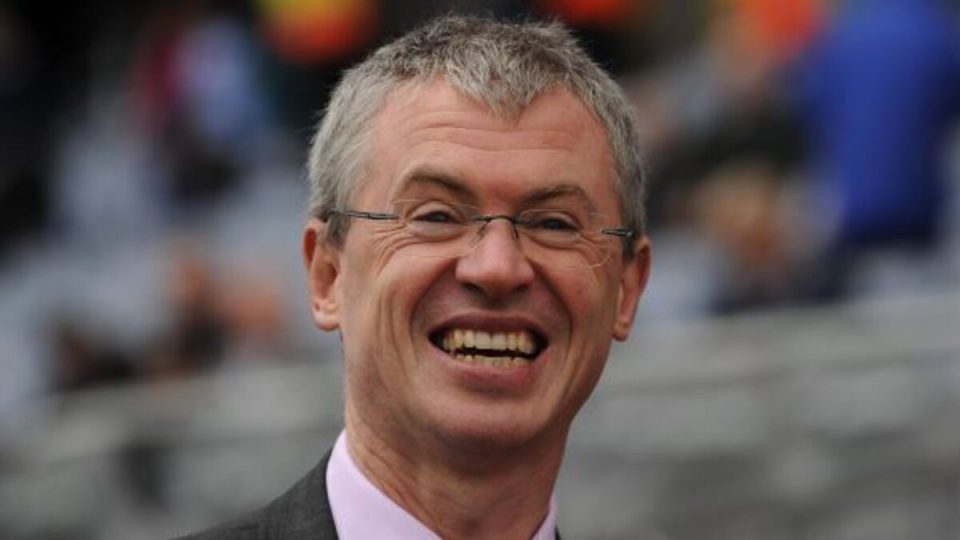At the weekend, Irish Independent columnist Joe Brolly told an untruth. Not a small untruth, but a big and verifiable one. Here it is:
There are in fact several completely false statements in that tweet. Charlie Kirk was not a white supremacist, as many black and hispanic colleagues of his have attested. Nor did he ever call for gay people to be stoned to death. Nor did he claim that black people have lower brain power (though he did suggest that affirmative action, the practice of appointing less qualified minority people to jobs ahead of more qualified white people, might result in an overall reduction in qualifications and intelligence).
For our purposes though, we will focus on the “stoning gays” smear, for that is what it is: An entirely false smear of a murdered man.
Another prominent person who repeated the false “he called for gay people to be stoned” comment was UK columnist Alastair Campbell. Campbell had the grace to apologise for the falsehood:
Note well that Brolly’s tweet was not without context: He was responding to the laudable condemnation of Mr. Kirk’s shooting by the Tánaiste, Simon Harris. The reasonable inference that it is likely at least some people will have taken from his commentary is that Mr. Harris was wrong to condemn the murder, and was by doing so in some way associating himself with Charlie Kirk’s views.
He published a falsehood about a dead man, the effect of which is that some readers may question if the murder merited condemnation.
In September 2017, George Hook was suspended by Newstalk Radio for making an awkwardly phrased remark about how women should take care for their own safety, in the context of a rape case. Hook was apologetic, but that did not stop a full-scale media witch-hunt from emerging, with multiple of his own colleagues in Newstalk calling for his sacking. Indeed one of those colleagues, Dil Wickremasinge, resigned from the station in protest. The affair effectively ended Hook’s glittering broadcasting career.
In July of that same year, my colleague and friend Kevin Myers, then writing for the Sunday Times, wrote what he would admit to be a clunkily-worded column in which, attempting to praise BBC presenters Vanessa Feltz and Claudia Winkelman, he noted that “Jews are not generally noted for selling their talent for the lowest possible price”. Kevin was falsely denounced as an anti-semite (the intervention of prominent Irish Jews, who have always considered him a friend, did not help) and dispatched from the paper in disgrace. RTE, not satisfied with this, went on to defame him as a ”holocaust denier” on Morning Ireland, for which Kevin later received a very considerable defamation payout.
In both cases, the outrage was not confined to their employers: Their fellow journalists, reporters, presenters, and editors, rounded on them both. It was made abundantly clear that “this sort of thing” should not be tolerated in the rarified circles of Irish broadcasting and print journalism.
Contrast this, I invite you, with the studied silence around Brolly. Search the replies to his tweet and you will not find one prominent (let alone not prominent) Irish journalist chide him for his falsehood. The prominent ones might get away with it, of course. The not prominent ones do not dare risk be publicly critical of a well-known left-wing columnist, because it would not be good for their careers.
The Sunday Independent, meanwhile, continues to leech off the Irish taxpayer through the state’s Comisiun na Mean funding of media, ostensibly to promote truth and accuracy.
But Brolly’s falsehoods matter. They matter in terms of what they tell us about his character, and in terms of what they tell us, perhaps more importantly, about the character of his colleagues.
Of him, we can say with some confidence that he is somebody who is perfectly comfortable publishing a falsehood about a dead man in the knowledge – because I presume he is not stupid – that at least some of his readers will take his point to be that Mr. Kirk had it coming. We can also say of him that when he discovers himself to be wrong, he appears to lack the integrity to apologise, unlike Alastair Campbell and world-renowned novelist Stephen King.
Of his colleagues, we can say with some confidence based on their absence of words criticising this behaviour that they do not care. These people, many of whom present themselves as the high priests and governors of truthfulness and accuracy in the face of “misinformation” and “disinformation” are one of two things: Either they are entirely comfortable with misinformation when it serves their own side of the ideological fence (I suspect this is true of the prominent ones), or they are too fearful of Mr. Brolly to risk crossing him.
Cowards or cretins, really. It’s one or the other.
Obviously, before writing this piece, I emailed my counterpart Liz Kearney, Editor of the Sunday Independent, for comment. I received the following statement on behalf of Mediahuis Ireland:
A Mediahuis spokesperson said: ‘Joe Brolly is a barrister, a podcaster and a columnist for the Sunday Independent. What Mr Brolly contributes to the Sunday Independent or any other Mediahuis platform is subject to our editorial guidelines and controls. What Mr Brolly publishes on his own social channels is the responsibility of that social media channel and of Mr Brolly.’
There you go: “Not our problem”.
But of course, it is their problem. Brolly’s prominence in Irish society comes in part from the platform they give him. His attitude to truth and accuracy reflects on their publication. But they just do not care.
That is how the Irish media works. They are reliably hypocritical, reliably biased, reliably cowardly, and reliably left-wing. That’s why they need the state funding in the first place – because if they were relying on people buying their product to make money, all of them bar perhaps the Irish Times would be bankrupt financially, as well as morally.

